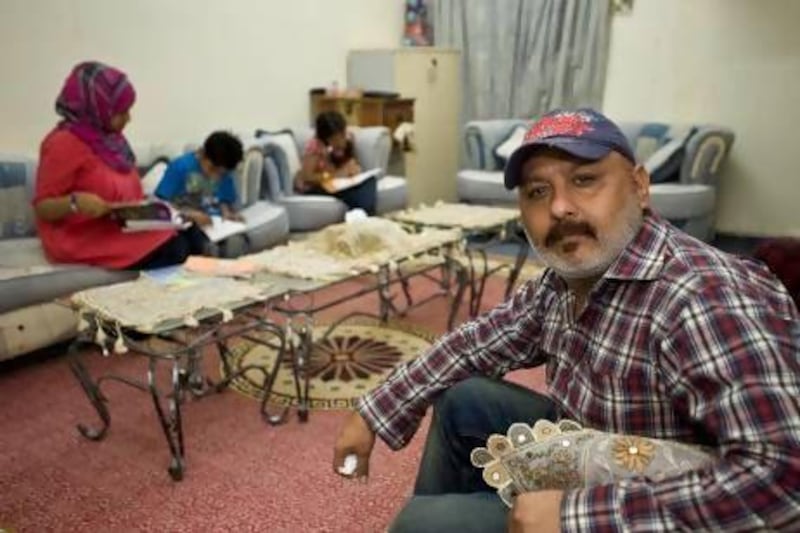DUBAI// Mahfooz Ahmed Jamali moved to the UAE this year with the hope of finding a better education for his children than they would receive in Pakistan.
After queuing for hours at each of Dubai's three Pakistani schools, he managed to find places at Al Farooq Pakistani Islamic School in March. But his woes are far from over.
This week, the father of three children aged five, seven and 13, was dismayed to learn that the school, which has 900 pupils, could close next year because of a rent dispute.
"It was a struggle to get them into a Pakistani school and now we have been told this one will shut too," said the worried father, who works in a garment shop.
"With such few options, what will parents like us do?"
The Pakistani Education Academy (PEA) and Shaikh Rashid Al Maktoum Pakistani School already have huge waiting lists, which will only grow longer if Al Farooq does close.
Concerned parents are calling on the community and authorities to step in and fund more Pakistani schools.
"This is important and should be looked at as a matter of priority now," said Mr Jamali. "The Pakistani population is growing and for our welfare the embassy, businessmen and philanthropists should come out and help build the education sector."
Mohammed Ashraf, a director at PEA, agreed that the need for more schools is pressing.
"We are operating at full capacity at the moment and have 150 pupils on a waiting list," he said. "It will be hard for us to accommodate too many pupils next year." He would like to see Al Farooq taken over by new investors, to keep it afloat.
Nor will Sheikh Rashid school be able to help much. Dr Abdul Rashid, its principal, said they will find it difficult to accommodate more pupils.
The Knowledge and Human Development Authority (KHDA) would like to see more schools, too.
Mohammed Darwish, head of regulations and compliance at the KHDA, Dubai's private schools regulator, urged investors to develop Pakistani schools.
"The Pakistani community, like all others in Dubai, demands high quality education for its children," said Mr Darwish. "[We] are keen to support serious school operators to serve this growing segment of the community."
Even those who do get a place are hardly guaranteed a good education. All three Pakistani schools were this year rated unsatisfactory by the Dubai Schools Inspection Bureau.
They were criticised for a lack of good leaders and teachers, and for their meagre teaching resources. And the inspectors called for an urgent and significant intervention by community groups.
Dr Zia Ul Hassan, president of the Pakistan Association in Dubai, said this was their priority. "We are quite concerned ourselves that they are not meeting the standards.
"The professional wing at the association identifies the infrastructural needs of the school to assist them. We also hold training workshops for teachers." He, too, wants private investors to step in.
Those investors are largely held back, though, by daunting economics. Providing quality education and building new schools is expensive, and fees are held down by regulation and by many Pakistani families' limited means.
Until more schools are built or Al Farooq finds a new building, Dr Rashid suggests Al Farooq could continue operating with evening classes in the premises of his school, Shaikh Rashid, and PEA - which would require KHDA approval.
"There seems to be no other way to accommodate these children," he said. "[Al Farooq] should request KHDA to allow evening classes in our facilities so that the children do not lose out."
Al Farooq's management said a request had been made, but no response yet received from the authority.
Meanwhile Mr Jamali has months of worry ahead. "I am praying that the school does not close," he said. "But if it does happen, I will go knocking on the doors of the other schools again."






